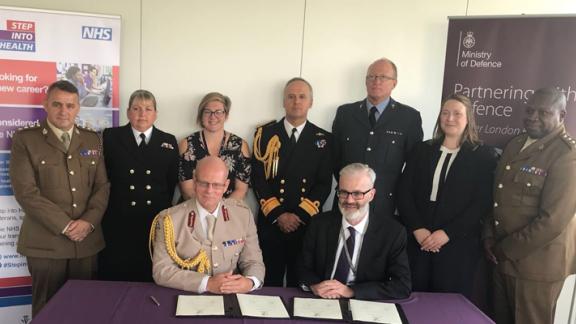The Armed Forces Covenant Duty

The Armed Forces Covenant Duty aims to increase awareness of service life in the Armed Forces community, among organisations that provide services in healthcare, education and housing. It also highlights potential disadvantages that members of the Armed Forces community may experience as they look to access key local services.
The Armed Forces Covenant Duty, introduced on 22 November 2022, places a legal responsibility on certain organisations to pay ‘due regard’ to the principles of the Armed Forces Covenant.
‘Due regard’ means that in line with the Duty, organisations will need to consciously consider the unique responsibilities and sacrifices made by members of the Armed Forces.
It also aims to negate the potential disadvantages faced by the Armed Forces community when looking to access local services. These disadvantages include:
- frequent house relocations
- separation from loved ones and support networks for long periods of time
- unfamiliarity with civilian life.
The Duty will support organisations to recognise and develop special provisions for certain key services that meet the needs of the Armed Forces community.
It should also lead to more informed policymaking, as these organisations will better understand the uniqueness of service and how this can cause disadvantage in accessing services compared to civilians.
The Armed Forces Covenant Duty applies to England and Wales, Scotland and Northern Ireland.
Additional guidance
The Ministry of Defence (MOD) has created statutory guidance to help organisations understand and meet the principles outlined in the Covenant Duty. The guidance includes examples of where disadvantage can arise, examples of good practice in service provision and other useful information.
You can access additional resources on the Armed Force Covenant website, including the Local Authority Guide to the Covenant and links to relevant organisations.



